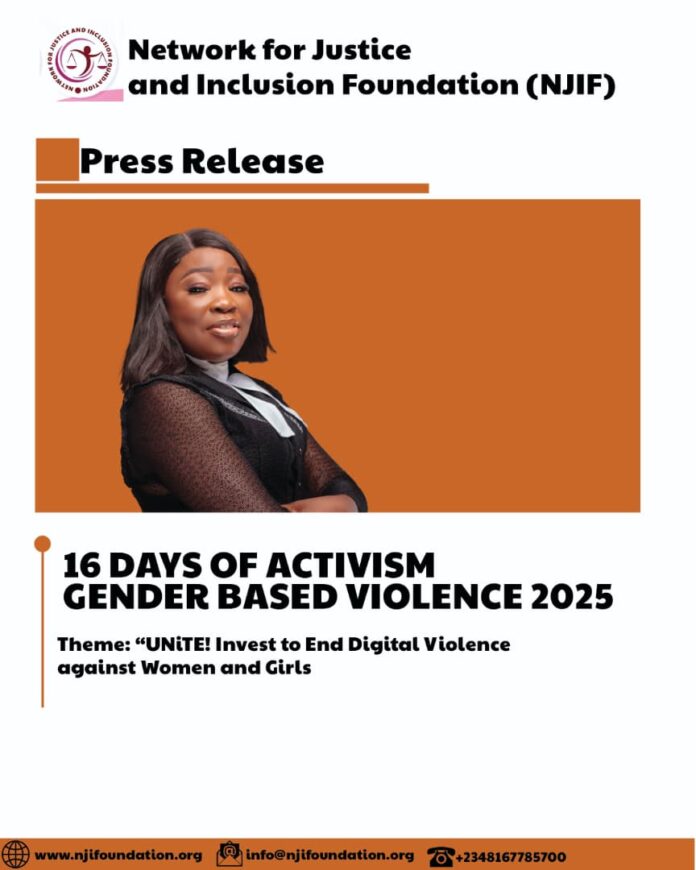The Network for Justice and Inclusion Foundation (NJIF) has expressed strong concern over what it describes as a disturbing rise in digital violence against women and girls across the country, warning that the trend is inflicting deep psychological harm and continues to silence victims in online spaces meant to foster expression and connection.
In a statement signed by its Convener, Mrs. Toju Ikime, the organisation noted that cases of cyberbullying, online harassment, impersonation and the non-consensual distribution of intimate content have grown more rampant, leaving many victims traumatised and without clear pathways to justice. According to the organisation, digital violence “is real violence,” with effects that linger beyond the screen.
“It destroys confidence, undermines dignity and erodes the sense of safety that every individual deserves online. Abuse behind the screen is not less harmful; it is only less visible,” the statement read.
NJIF argued that online spaces must uphold the same values expected in physical environments, privacy, respect and safety, especially for women and girls who are disproportionately targeted. The Foundation called on technology companies operating in Nigeria to take firmer responsibility by enforcing community standards, removing harmful content promptly and strengthening reporting mechanisms that allow victims to seek redress without fear or intimidation.
The group also urged tech platforms to invest more in digital literacy initiatives that empower users to navigate online spaces safely, noting that prevention and early intervention are key to reducing digital harm.
Beyond the tech ecosystem, NJIF stressed the need for collective action from government agencies, development partners, civil society groups, educators and community stakeholders. The Foundation recommended coordinated efforts to create widespread awareness on digital safety, promote responsible online behaviour and expand inclusive digital literacy programmes, particularly for young people and women in underserved communities.
“It is important that survivors do not feel isolated, ashamed or unprotected. The safety of women and girls cannot stop at the doors of their schools, homes or workplaces. It must extend into every digital environment, every app, every screen, every platform,” the organisation stressed.






